 I have a confession to make, friends: I’m getting worn out on series.
I have a confession to make, friends: I’m getting worn out on series.
I’m not sure when or how it happened, but in the last couple of years or so I’ve been seeking out more and more stand-alone novels and even writing my own. Which is weird, considering I used to snub my nose at stand-alones, and all of the stories I wrote (and planned to write) were plotted out as trilogies.
So what changed? Well, my theory is that I’ve come down with something I’ve dubbed “Sequel Disappointment Syndrome.” One day it struck me that I’ve read very few series that are actually well-executed and deserving of their 3-7+ volumes. To be honest, the majority of series I’ve read have a fantastic first book, but the sequels fall short in comparison and disappoint.
I can’t tell you how many series I’ve come across where I think to myself, “This really would have worked better as a stand-alone.”
And honestly, I would rather read a fantastic stand-alone than a trilogy where book 1 is amazing but books 2 and 3? Um…not so much.
These days, it seems like every book is a trilogy, if not part of a longer series. I can’t help but look back at the wealth of classics like Pride and Prejudice, Dracula, and Wuthering Heights just to name a few, and wonder if their authors were onto something by making them stand-alones. When did we start feeling the need to make everything a trilogy? If these books had been written today, would they have been series instead? And would their sequels have been as good as the originals? One has to wonder.
To Write a Sequel or Not to Write a Sequel?
If you decide your story does indeed need a sequel, I must advise you to write responsibly. As a reader who has been disappointed far too many times with trilogies and series, I can tell you that the last thing you want to do is disappoint your audience.
Why?
When a reader picks up your book, they are placing their trust in you, the author. A disappointing sequel can break that trust. It can make the reader question your abilities as a storyteller. If you break a reader’s trust, not only is there a chance they might not pick up the next book in your series, but they might not pick up any other books from you period.
Ever.
Now that may seem a little harsh, but I can attest to its truth. If an author bungles a series, I won’t rush to start their next one. How do I know this one won’t be any worse than the last? Reading a series is a huge time commitment, and I’m not keen to spend my time on an author who was disappointed me in the past.
As you can see, keeping your reader’s trust is crucial. And to accomplish that, you must show them you know what you’re doing. To help you navigate the treacherous waters of writing a series, here are my tips for disappointment-proofing your sequels.
1. Make Sure You Have Enough Story
I can’t stress this one enough: Don’t write a series because it seems like “the thing to do”; Write one because it will require more than one book to tell your story.
Don’t approach writing a story from the mindset of “I want to write a trilogy” or “I want to write a 7 book series.” You need to shift your mindset to focus on your story first and foremost. Then ask yourself: “How many books will it take to tell this story?” and go from there.
So how do you know if you have enough story to justify a series? This brings us to point #2…
2. Plan it Out
Friends, this is SO important. You need to plan out each book in your series in as much detail as you possibly can. If you’re not a plotter, you need to learn to become one. I don’t believe a series is something you can “pants” with good results.
Now, I know a lot of writers say to plan out your first book in great detail and then have general ideas for the additional books in the series. I’m going to have to say that from my own experiences, I must disagree with this approach.
Why? Let me give you an example.
I used the above method for my first trilogy in high school. The book one came together well, but the next two? They were a complete mess. I didn’t plan them well enough and they were all over the place with no direction and too much filler.
Fast forward to today. I knew my next work-in-progress would be too long for a standalone, and I had roughly plotted it out as a trilogy. By “plotting” I mean listing some ideas for each book as I had in the past.
But based on my last experience with writing a series, I wanted to make damn sure I had enough material this time. I went back and *really* plotted out the story scene-by-scene, dividing each book into 3 full acts. And you know what I realized? My story was actually a duology, not a trilogy.
Now, if I hadn’t realized this until after I had started writing, you know what would have happened? I would have run out of story and had to add filler. That means not only wasting my time, but the reader’s as well. I’ve read series where it felt like the author didn’t plan ahead. This leads to distorted, jumbled plots without clear direction, random subplots, unnecessary characters, and so on.
Now, you probably don’t need to plan out each book scene-by-scene like I did–I’m a little intense. But if you want to write a solid, amazing series, I highly encourage you to plan as much material as you can as far ahead as you can.
3. Don’t Add Filler
When you’re planning your series, make sure every scene, subplot, and character has a purpose and contributes toward the story’s end goal.
Sometimes, it’s going to be hard to choose which characters to focus on. You might create characters who become personal favorites, but don’t really play a big part in the story. You have to learn to control your feelings towards your characters and not give them more page time than they deserve.
For example, although I enjoyed Cassandra Clare’s Mortal Instruments series, I felt the subplot of Mia and Jordan was unnecessary and felt more like filler. They didn’t contribute a lot to the main story and probably could have been cut (in my opinion).
In short, be purposeful and selective with your main/POV characters and accompanying subplots.
4. Don’t Rush the Ending
One thing I hate more than anything is when an author rushes the ending of a story or series. I always feel cheated when I’m taken on an emotional journey only to have it end with a flat, abrupt conclusion bereft of the emotion I had been enjoying throughout the novel.
The only reasons I can think of for why authors might rush their endings are 1) They were exhausted 2) They were bored with the story, or 3) They were afraid of making it too long.
These are all terrible reasons. Set the story aside and take a break, or write on something new for a while if you must. If books 1 & 2 were 60,000 words and book 3 needs to be 90,000 words to show the ending in-depth, then you write those extra 30,000 words.
But whatever you do, don’t half-ass your ending. You owe it to yourself, your story, and your readers to give your novel a proper conclusion with all the detail and emotion it deserves.
5. Focus, Focus, Focus!
Sequels usually work best if a common thread is woven throughout them. The books in your series should be connected by an overarching goal that ties them together, like so:
In Harry Potter, the goal is defeating Voldemort.
In The Lord of the Rings, the goal is destroying the One Ring.
In The Lunar Chronicles by Marissa Meyer, the goal is stopping the evil Lunar Queen from taking over earth.
Each book in these series has its own subplots, but the main goal spans the length of the series, helping to tie the books together. As a whole, each of these series is one giant story.
Additionally, the climax of the final book in your series should be the resolution of the main goal. If readers get to your final book and the climax is not the resolution of this goal, it will likely lead to disappointment.
For example, in The Wrath and the Dawn by Renee Ahdieh, **spoilers** there is a lot of build up regarding Khalid’s curse, and the end of book one sets up that the characters will try to break the curse in book two, The Rose and the Dagger. But in the sequel, breaking the curse wasn’t the climax of the story. The focus was elsewhere, which threw off my expectations and left me feeling disappointed. By having another event serve as the climax, I felt the story lost much of its power, focus, and emotion. **end spoilers**
Side note: The only series (that I know of) that I have seen deviate from using the same main goal throughout each book with success is C.S. Lewis’ Chronicles of Narnia. Lewis focuses on a new goal and story line in each book, and somehow it works well for him.
What disappoints you in a sequel? Do you prefer writing series or standalones? Share your thoughts below!
Ready for Part II? Click here!










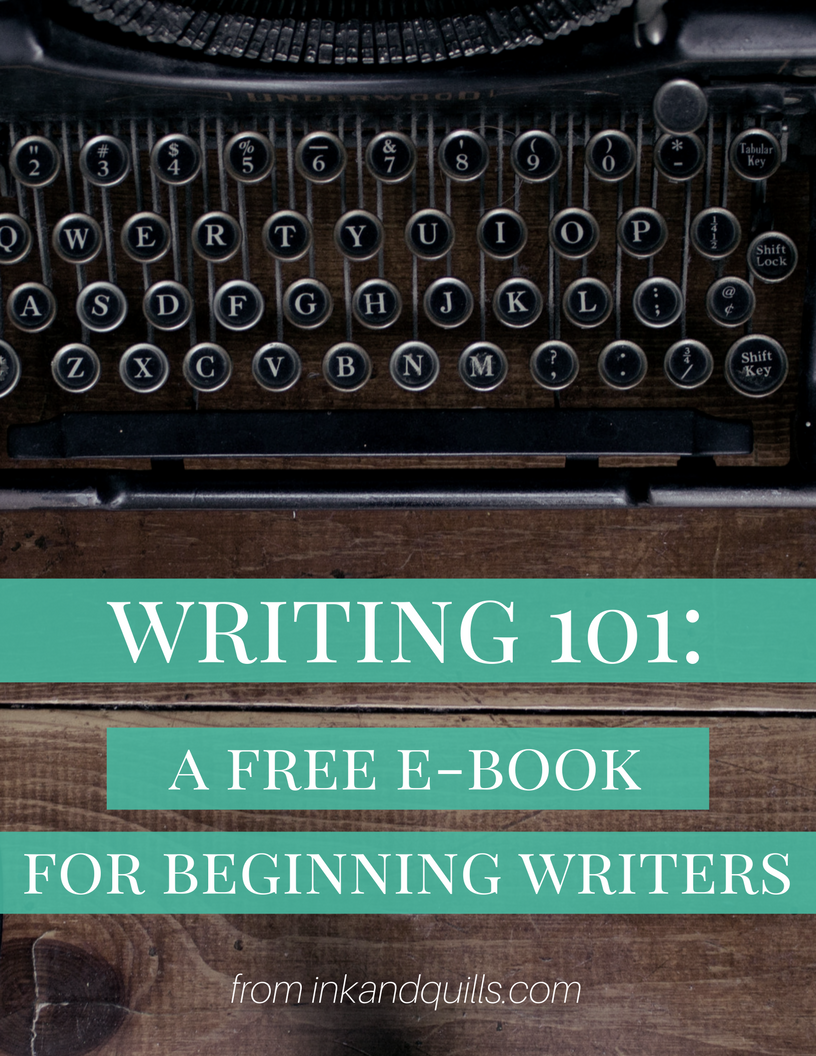

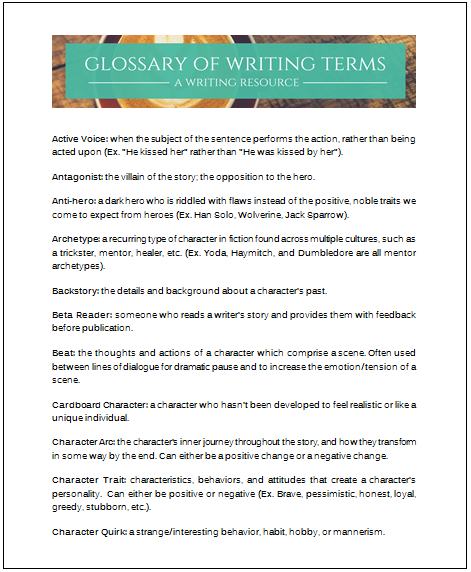

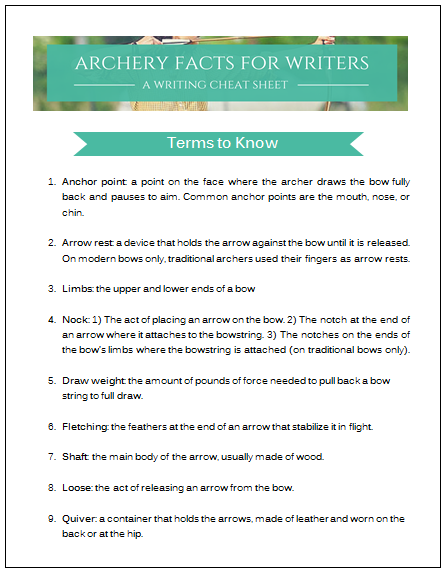



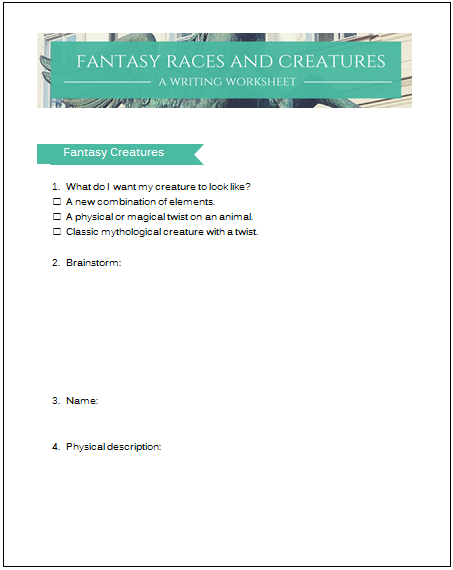


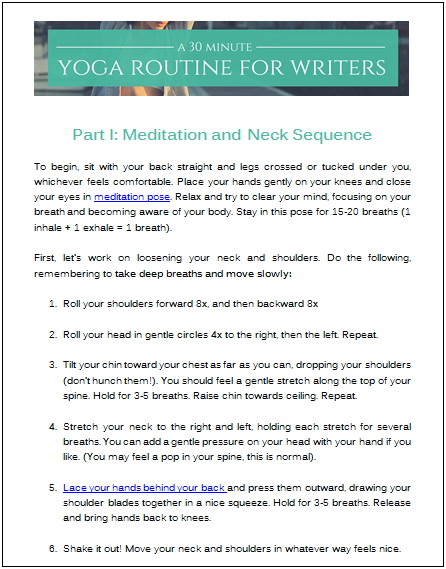
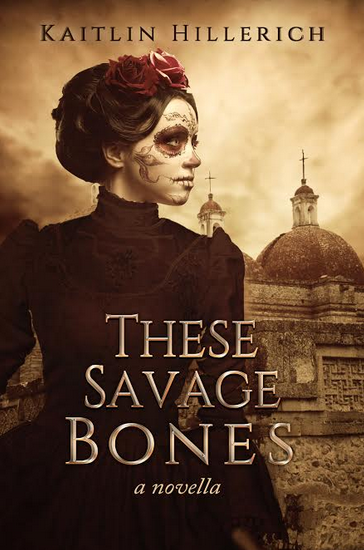
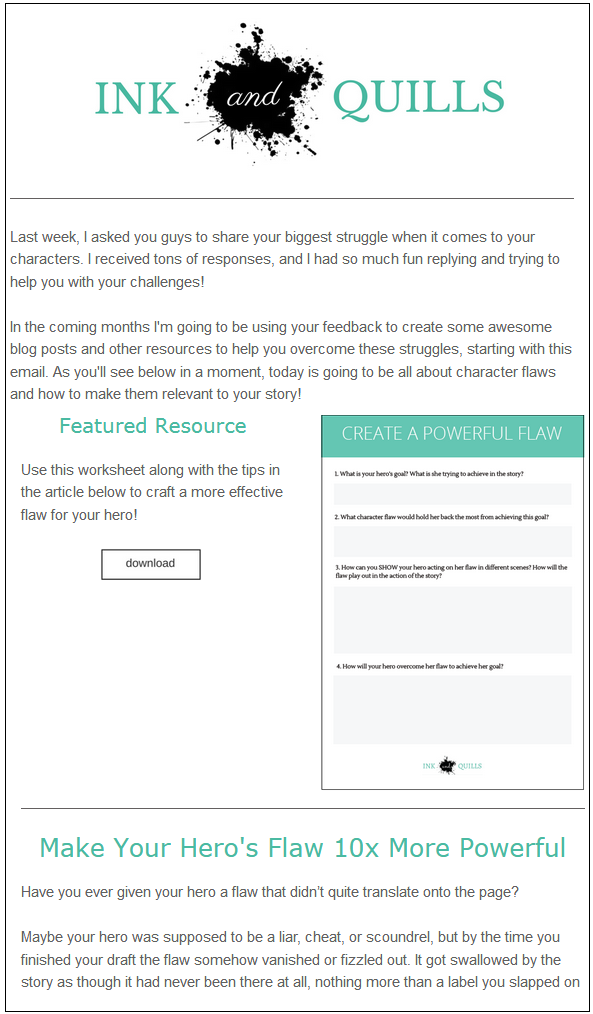
My biggest disappointment with series is when they drag out longer than necessary. I love this post. I think it serves as a very good reminder to not write a series just to write one. I’m editing my first novel, which I intend to be the first in a series, and although I have ideas for the other books, I’m not putting a number on it until I’ve planned it out. And I definitely don’t want to publish the first book before knowing how many I intend to write.
I’m with Jo. I hate reading books that are dragged out. I thought the second Divergent book, Insurgent, was dragged out way too much, with too much filler, and my gosh, how many times is she going to run back to Erudite? Good grief, woman!
But yeah. I started writing my first novel as a series, and planning it as a series kind of killed the ending of the first book, because I left it on a cliffhanger. I think the best series have to work as stand-alones, too.
I had a story that ran for over 50 issues. That was 17 or so years ago. The Ezine died a painless death and faded away. How I managed to keep my serial going for that long? I treated each issue as a stand-alone story as well as a part of the main story. I also, ended with a cliffhanger to start the next issue with.
I take issue with sequels that seem eerily familiar and then you realize the author has reshuffled the first book so as to recycle the plot. Thus, any gains become contrived retreats so we have to start all over again. The series becomes, not a long and winding road to a goal, but a circle (a death spiral for the reader). There are poor writing techniques often accompanying this crime, but this is the overall issue and has led to me bailing on series by book two or three so often I read few series anymore.
Your post made me think of an author friend I hadn’t thought of in quite some time. Ages ago (2012?) I reviewed the first book in his sci-fi trilogy for a blog I had at the time. It seemed like it stopped abruptly at 100000 words. It, of course, ended in a major cliffhanger but there were also many, many unanswered questions. When I spoke with him about the holes I felt were there, he told me the original manuscript had been 155,000 words and the publisher made him trim it…this was only book 1 of a trilogy!
Book 2 came along and clocked again as a very lengthy tome, answered some of the questions in book one, presented new ones and still left us all hanging waiting for the end. It’s never come. He never wrote the third book and is now working on his fourth book in a more fantasy oriented series.
My point is, it goes both ways. An author shouldn’t drag it out but s/he also needs to finish what s/he starts.
Me, I write in series most of the time but my primary series is of the sort of thing Grafton or Evanovich would write. Yes the primary characters change and grow from book to book but each book stands alone too. With mystery, you can do that.
I must read different series’ than you. Which is possible. I read adult romance and the series I tend to read in that genre usually surround family members (like all of Melissa Foster’s books), employees of a business (i.e. tattoo shop, MMA gym, etc.), members of an athletic team (I like reading the hockey ones), members of a rock band (Olivia Cunning), citizens of a small town (Lori Wilde), that kind of thing. So each story is about a different team member/family member/employee, whatever. I’ve never read an adult romance where each book in a series was about the same character(s) (like 50 Shades). As a newbie adult romance writer, I’m going to be writing series’ like that: each book will be about a different character, but still have that crossover of other characters. I also plan to do standalones because I have secondary characters in mind that will get their own stories.
Just stopping by to say that this post is GOLD. I cannot wait to share it every chance I get. You rock, friend!
That is all. 😉
I’m in the middle of edits with the editor on my sequel, and man, the fear is real. Even when you know you’ve got a good story, it’s crazy. Love this post!
This is such a great article! I eagerly look forward to Part II. Man, writing sequels is one thing that scares me. Disappointing future readers/fans is one of my greatest fears as a writer, probably. This post made me feel better, because I’m already following most of these very rigidly… but I will continue to keep all these tips in mind! ^_^
I hate it when book 2 in a trilogy become “filler” to get from book 1 to book 3. Nothing really happens, it is all just drawn out to get to exciting wham-bang ending in book 3. And mostly book 2s become “training” books. The main character has satisfied part of his goal in book 1 but needs to be trained to become the ultimate badass for book 3. I yawn at all the lengthy descriptions needed to describe such training. Example: I loved Eragon. I read Eldest and I was so bored that I haven’t read the rest of the series. It was a terrible disappointment. Example 2: Book 3 in the Throne of Glass series follows Caelenna as she runs around the forest with her half-fae friend. Again, I haven’t bothered to pick up book 4 yet because I was so bored with Book 3.
I also hate it when authors create sequels even though the story they told was already done. An example is the Mortal Instruments by Cassandra Clare. The series worked well in a trilogy. Then all of the sudden a dead enemy is brought back to life so the series could go on. Likely because it meant more $$$ for the author. Tell your story, the whole story, and don’t force it out or milk it when it is done. Move on to something else.
That being said I started writing a book that over time divided into three books. As such I was able to weave in the ‘easter eggs’ into all three stories that held significance later. Most authors would be appalled at this – writitng one book and getting it published is hard enough, why would you spend the time writing two more before you’ve gotten book 1 published? I did it anyway, because I wanted to flesh out my story in full. And I heartily enjoyed writing it.
These are the thoughs of a reader, not a writer. And nope; I haven’t gotten my book 1 published or even signed with an agent – yet. I’m hoping I still can.
This is amazingly helpful, love the blog, look forward to posts! (Love the E-books too!) This post got me into a continued plotting of my fantasy series (started, got a basic outline but not very in-depth) Finally made me break out the ‘ol authors notebook and plot!
I hate it when series suffer from “second book syndrome”. The first book is so amazing and then the second book is what you described as above: filler until the climax in book three. One example for me is Eragon.
I. loved. book. one. So very much. The second book was such a letdown for me I never read books three and four. We spent too much time with Eragon pining over his elf girl and “training”.
Second books (especially fantasy) also fall into the “hero trains” category. First book sets up the ultimate goal and the unlikely hero. Second book the hero trains to be the hero he/she will become. Third book the hero goes out and kicks ass and completes goal.
Example: Star Wars.
Book 1: Luke has a destiny, bring down the Empire.
Book 2: Luke trains to become the hero.
Book 3: Luke takes down the Emperor.
Now luckily Book 2 (or Book 5, if you will) has other plots happening to still keep it interesting. But if we were stuck with only Luke training for three-quarters of the book/movie it would be exasperatingly dull. Even though it’s cool to see him come into his element (and necessary) watching the hero train may give him growth as a character but can get boring.
I didn’t plan to write a series. It was one book. That became two books, then three and now four because I realized I had so much more story to tell and so much more character to develop.
One thing I like about writing the entire story at once is I can go back and add elements to book 1 that will appear in book 4. I know not every author prefers to write this way, as it is very time consuming. And of course if your book 1 doesn’t sell then books 2, 3, and 4 won’t even be looked at.
I honestly can’t fathom how authors write book 1 of a series, publish it, and then start writing the next book. But that’s just me. I like having the whole story to work with so I can interweave themes and recurring plot elements to solidify the entire story. Now all I have to do is convince someone to publish it. 🙂